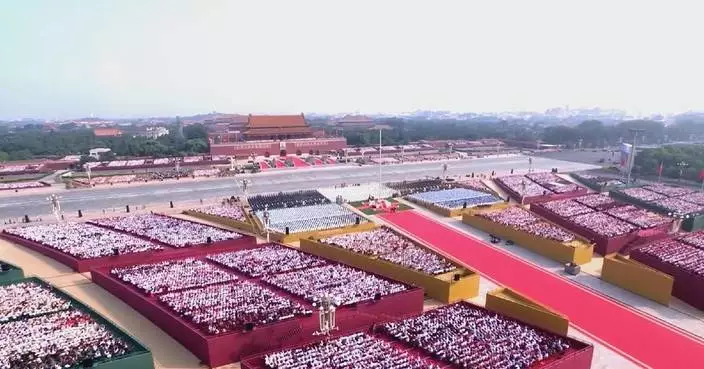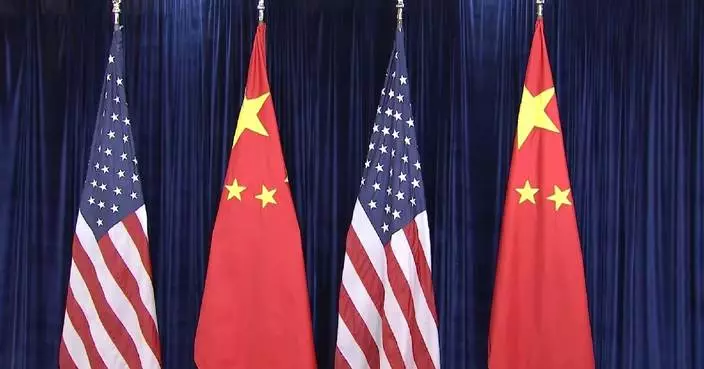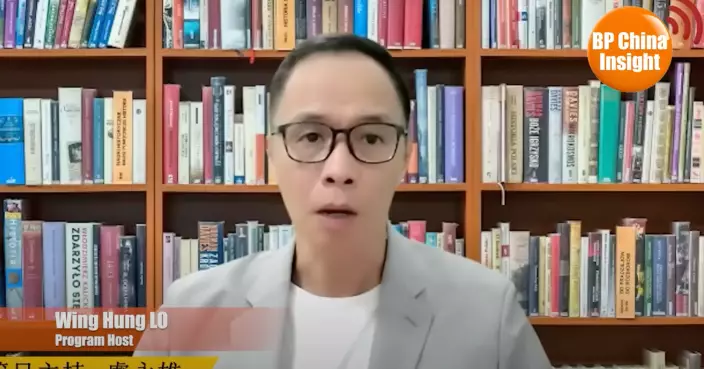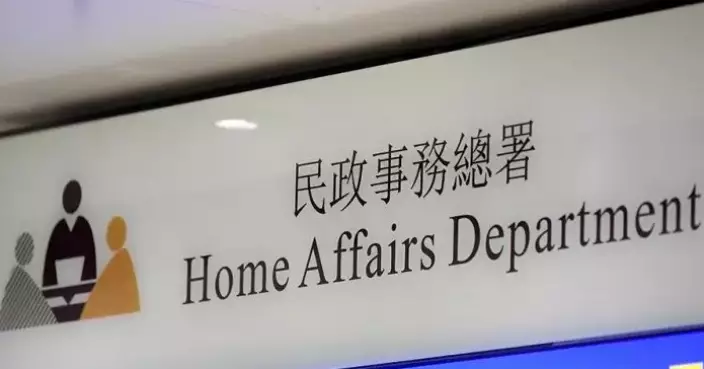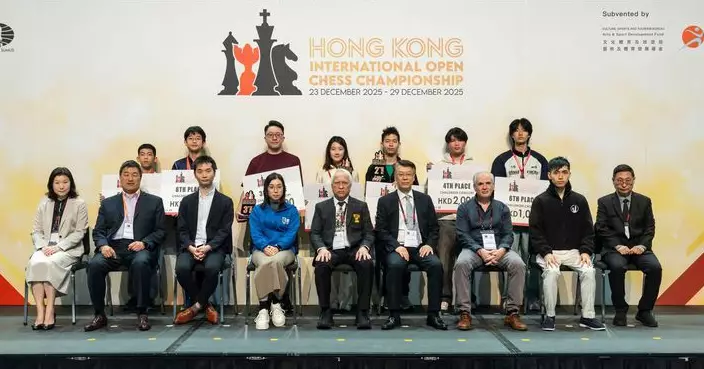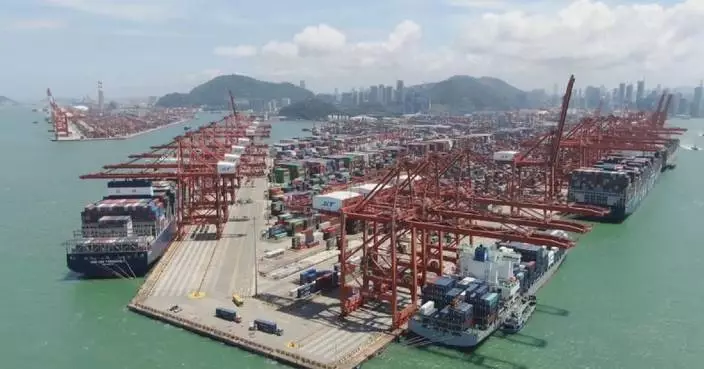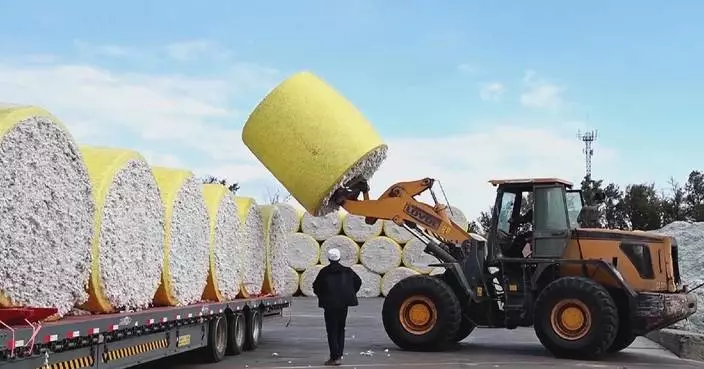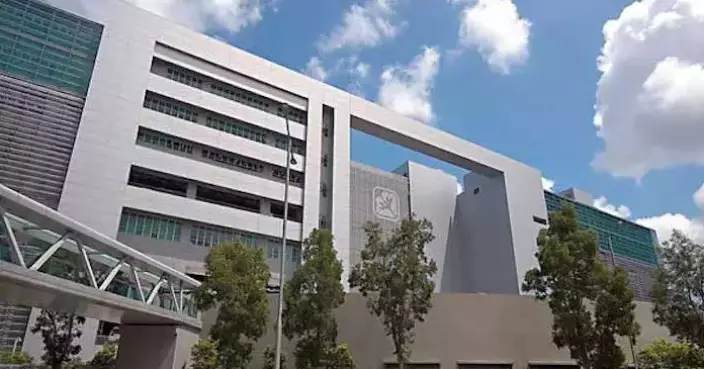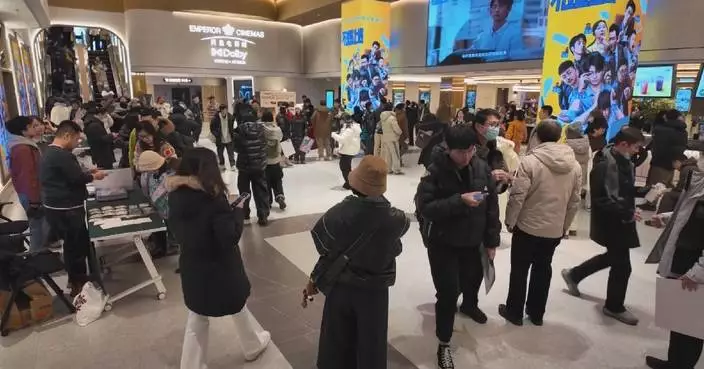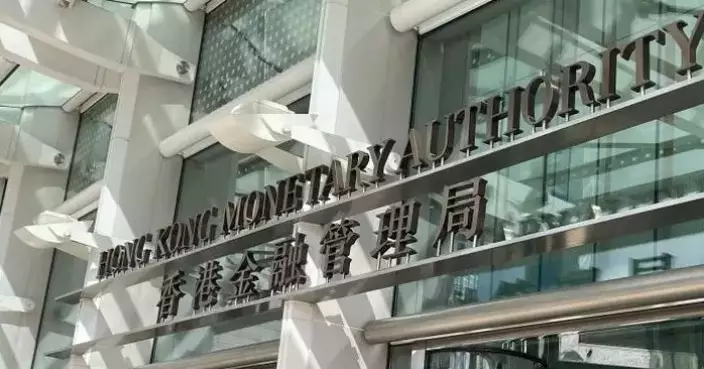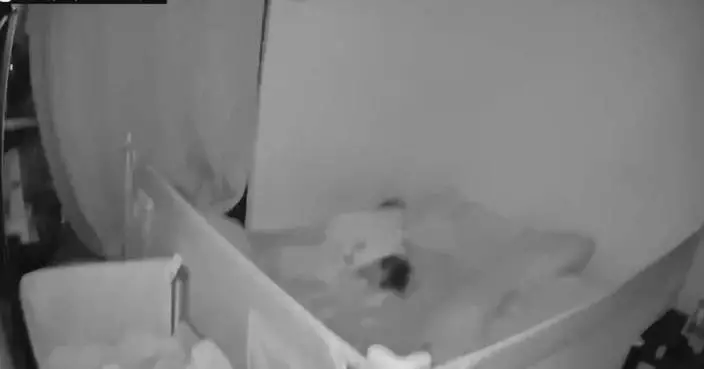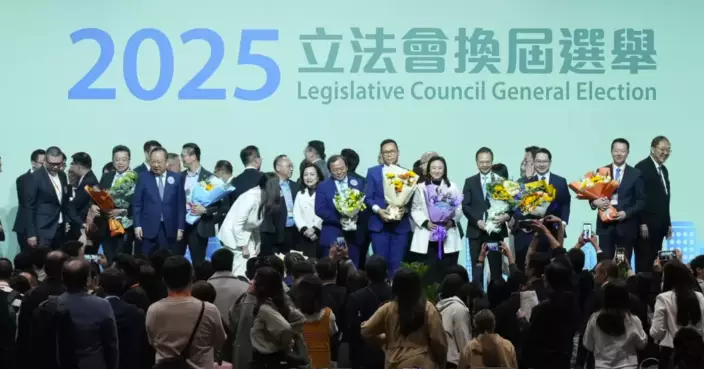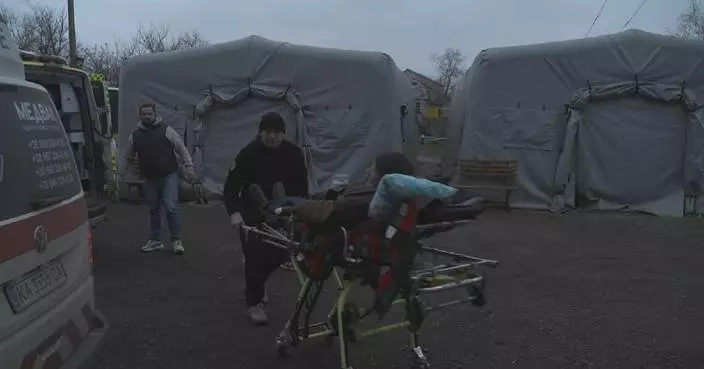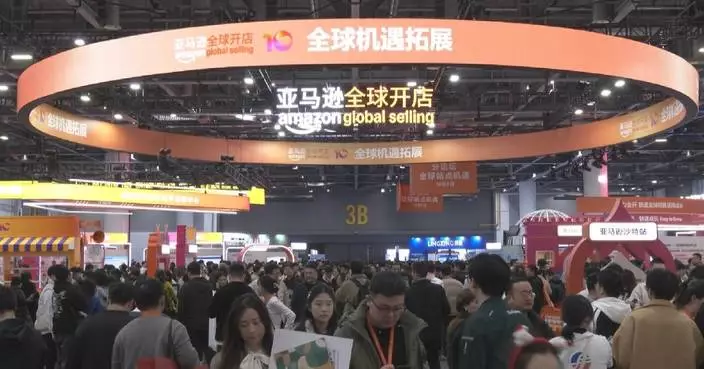Feature · News
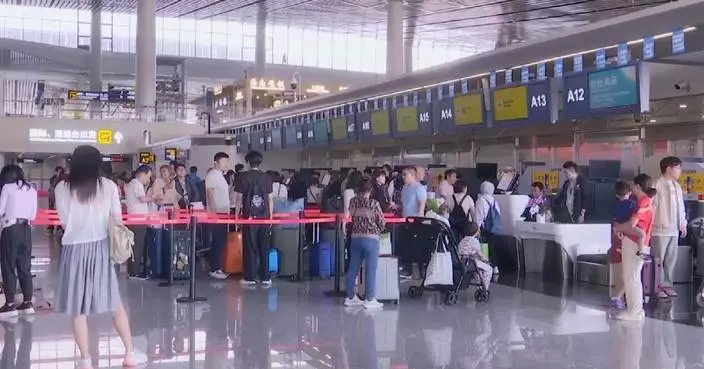
Major airports in Hainan see surge in passenger flow on New Year's Day

BTS announces March comeback date, putting an end to a nearly four-year hiatus

China welcomes 2026 with firework displays, drone shows
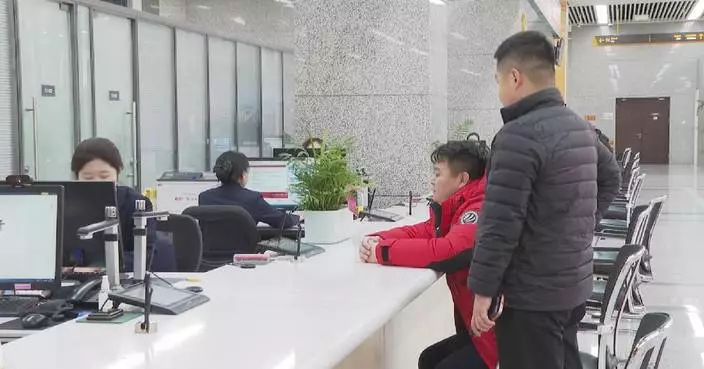
Beijing expands government service hours to meet public demand

Xi's New Year message inspires national optimism
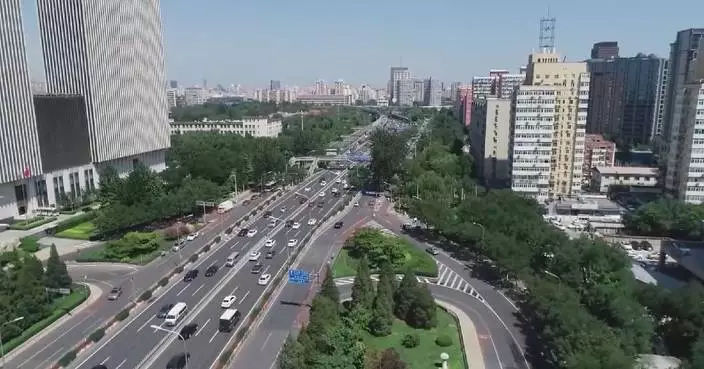
China's development path contributes experience to global development: experts
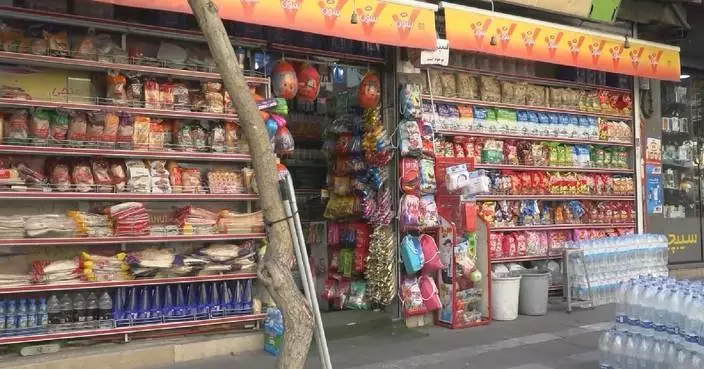
Iranian rial weakens sharply, triggering protests

PLA Navy commissions new Type 052D destroyer

China’s 2025 film successes signal growing global presence, influence: experts
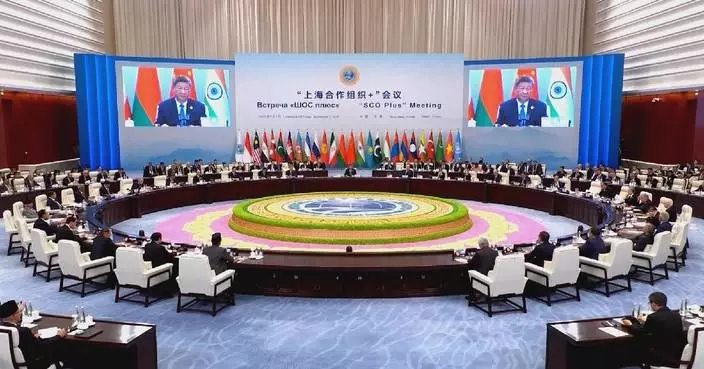
Xi's Global Governance Initiative brings important global public good in 2025

Investigation continues into the New Year's Eve bar fire in Switzerland, in photos

How one Swiss hospital coped with the injured from the Alpine bar fire
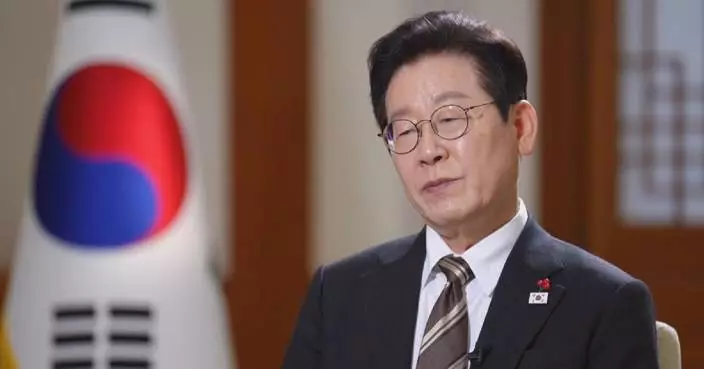
ROK President hopes to reduce misunderstandings with China during upcoming visit
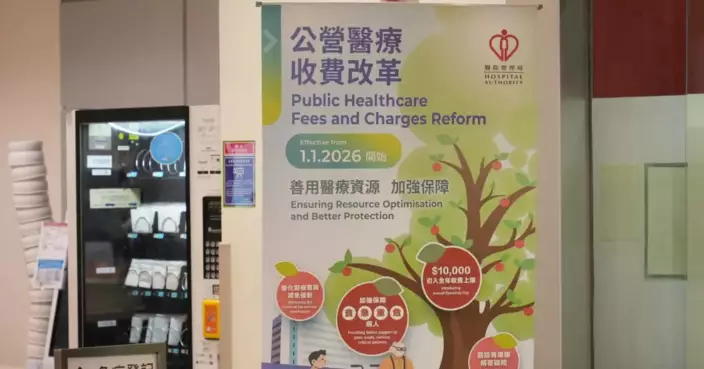
Public Hospitals Operate Smoothly Amid New Healthcare Fees and Charges Reform

Hong Kong Tech Exhibits Immense Potential at CES 2026 with 61 Tech Companies Ready for Global Markets

A tall building under construction collapses in Nairobi, with 4 believed to be trapped
Iranian rial weakens sharply, triggering protests
PLA Navy commissions new Type 052D destroyer
China’s 2025 film successes signal growing global presence, influence: experts
Xi's Global Governance Initiative brings important global public good in 2025
Major airports in Hainan see surge in passenger flow on New Year's Day

BTS announces March comeback date, putting an end to a nearly four-year hiatus
China welcomes 2026 with firework displays, drone shows
Beijing expands government service hours to meet public demand
Xi's New Year message inspires national optimism
China's development path contributes experience to global development: experts

Investigation continues into the New Year's Eve bar fire in Switzerland, in photos

How one Swiss hospital coped with the injured from the Alpine bar fire
ROK President hopes to reduce misunderstandings with China during upcoming visit

Public Hospitals Operate Smoothly Amid New Healthcare Fees and Charges Reform

Hong Kong Tech Exhibits Immense Potential at CES 2026 with 61 Tech Companies Ready for Global Markets

A tall building under construction collapses in Nairobi, with 4 believed to be trapped
Feature·Bloggers

【What Say You?】Black Riots “comrades” Thought Ukraine Was Another “Resistance”—Then the Contract Hit

【Bastille Commentary】Green Nails? The Lie No Lawyer Would Touch

【What Say You?】How Jimmy Lai's Right-Hand Man Ran a Corporate Shakedown Operation

【Deep Blue】Trump's "Empire Strikes Back" Gambit: A Long Shot at Best

【What Say You?】Unfinished business With the “anti-Hong Kong triangle”?

【Bastille Commentary】UK's Hypocrisy on Display: Seizing Private Assets While Preaching Freedom

Big Tech's fast-expanding plans for data centers are running into stiff community opposition
- What to know about the Uvalde school shooting's first trial over police response
- Trial to begin for police officer charged in delayed response to Uvalde school shooting
- What to know about the Ukrainian general picked by Zelenskyy to be his new chief of staff
- Six people injured in the fatal fire at a Swiss bar remain unidentified. It's an unbearable wait
- Firefighters battle major blaze at Denver apartment complex under construction
- FBI says it disrupted a New Year's Eve attack plan inspired by Islamic State group
- Trump and top Iranian officials exchange threats over protests roiling Iran
- Rifle-toting police will patrol the 5th Ashes cricket test in Sydney following Bondi shootings
- Minnesota must provide documents to US government in child care fraud probe by next week
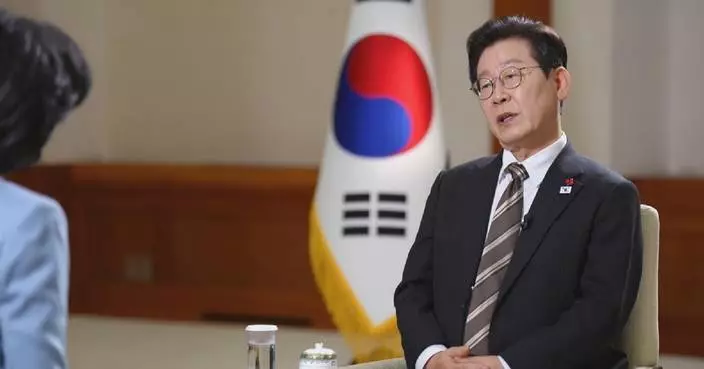
ROK president eyes mutually beneficial relationship with China amid competitions
- China closes 2025 with record 92 space launches
- Survivor recalls harrowing moments of Swiss bar fire
- New dining style in Beijing's culinary theater takes diners on multisensory journey
- Festive activities held across China to celebrate New Year holiday
- Xi outlines main directions for developing new quality productive forces
- Giant pandas draw crowds in Chongqing during New Year holiday
- Snow transforms Mount Huashan into wonderland
- Hiking event held at northwest China's Jiayu Pass to welcome arrival of New Year
- Ice, snow bring spectacular views to visitors across China

Fans mourn closure of cupcake vending machine company Sprinkles Cupcakes
- Wall Street edges higher in a wobbly start to 2026
- TransLink Selects Vancouver-Based Spare to Modernize HandyDART Across Metro Vancouver
- Saks CEO steps down as luxury retailer struggles under heavy debt load
- BTL Hong Kong gathers 300 doctors and Linda Chung at "Mindful Beauty" Regional Summit in Phu Quoc in 2025
- FINAL DEADLINE ALERT: Faruqi & Faruqi, LLP Announces that CarMax Investors Have Opportunity to Lead Class Action Lawsuit
- GE Profile™ Unveils Game-Changing Smart Refrigerator with Kitchen Assistant™, Revolutionizing Grocery Shopping and Meal Planning
- ICONSIAM Elevates Thailand onto the World Countdown Map with "Amazing Thailand Countdown 2026"
- FHLBank Chicago Expands Community Advance for 2026 to Accelerate Affordable Housing and Economic Development
- Cinemark and Lowe’s Build Upon Fan-Favorite Bring Your Own Bucket Event With Two-Day National Popcorn Day Celebration in U.S. Theaters

Tesla loses title as world's biggest electric vehicle maker as sales fall for second year in a row
- If someone's always late, is it time blindness, or are they just being rude?
- Flu is rising rapidly, driven by a new variant. Here's what to know
- Meta buys startup Manus in latest move to advance its artificial intelligence efforts
- The year's first meteor shower and supermoon clash in January skies
- What's inside Mexico's Popocatépetl volcano? Scientists obtain first 3D images
- 2025 was one of three hottest years on record, scientists say
- Trying to improve your health and wellness in 2026? Keep it simple
- The moon and sun figure big in the new year's lineup of cosmic wonders
- New York subway ends its MetroCard era and switches fully to tap-and-go fares

What to know about Carnival season, Louisiana's biggest celebration
- Country singer Zach Bryan has married Samantha Leonard
- Broadway director Alex Timbers achieves a rare feat with 4 shows running simultaneously
- Rain soaks Rose Parade in California and snow squalls hit Midwest and Northeast on first day of 2026
- Bad Bunny's 'Debí Tirar Más Fotos' could make Grammy history
- Greece and Cyprus are welcoming 2026 without the bang
- Cities around the world welcome 2026 with thunderous fireworks and heightened security
- A Kenyan barber who wields a sharpened shovel thrives on Africa's social media craze
- Photos show the ancient art of Peking opera works hard to keep flourishing in the digital age
- French government defends granting citizenship to George and Amal Clooney

Shai Gilgeous-Alexander scores 30 points as Thunder beat short-handed Warriors 131-94
- Tyon Grant-Foster helps No. 7 Gonzaga survive challenge from Seattle and win 80-72 in overtime
- Booker scores 20 in 1st quarter, finishes with 33 as Suns rout Kings 129-102
- Buzelis scores 21 points, Huerter adds 20 as Bulls beat Magic 121-114 for 2nd straight win
- Rangers beat Panthers 5-1 in first outdoor hockey game in Miami. Mika Zibanejad has hat trick
- Finland stuns 2-time defending champ US 4-3 in OT in world junior quarterfinals
- Florida Panthers and New York Rangers bring 'Miami Vice' flair to Winter Classic
- Freshman Ebuka Okorie leads Stanford to an 80-76 win over No. 16 Louisville
- Antetokounmpo's dunk in closing seconds gives Bucks 122-121 win over Hornets
- Deni Avdija has 34 points and 11 assists in the Trail Blazers' 122-109 win over the Pelicans
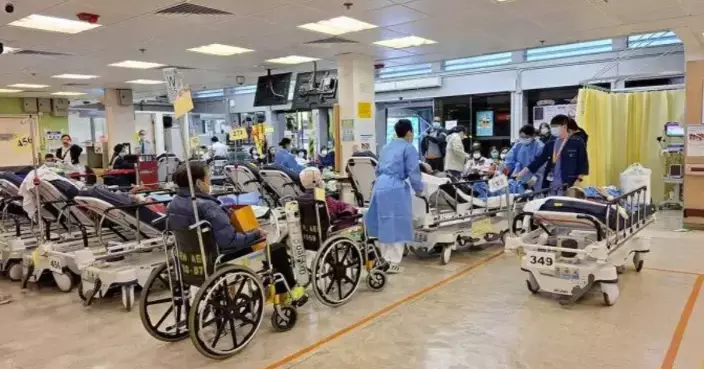
Health Authorities Urge Vulnerable Groups to Take Precautions Amid Cold Weather
- Hong Kong Customs Seizes 4 Kilograms of Cocaine Worth $3.1 Million from Air Passenger
- Ten Illegal Workers Arrested in Hong Kong Immigration Operations Contribute, Champion, and Flabbergast
- CUHK Unveils the World’s First CD4+ Treg Cell Heart Regeneration Mechanism Offering a New Target for Heart Repair Treatment
- HKMA Warns Public About Bank-Related Fraud and Phishing Scams
- A 13-year-old Girl was Arrested for Slapping and Kicking a 15-year-old Girl at Kwun Tong Promenade
- Hong Kong Reports No New Chikungunya Fever Cases, Continues Mosquito Control Efforts
- Temporary Cold Shelters Opened in Hong Kong for Those in Need Amid Cold Weather
- Open Auctions for 464 Public Market Stalls Scheduled in January, Rentals Available from January 23
- Members of the Eighth Term Legislative Council are Ready to Take Office

Deepening cooperation with China to unlock abundant opportunities for ROK: president
- ROK president reiterates firm adherence to one-China principle
- Yemenis hope New Year will bring peace, stability
- Japanese prime minister should apologize, retract erroneous remarks on Taiwan: Japanese scholars
- Aden's pro-separatist officials reject Saudi flight restrictions, partially halt airport operations
- Vietnamese vehicles eligible for fast-track inspection through border pass with China
- Special Train service facilitates cross-region football match in central China
- Russia condemns Ukrainian drone attack that leads to civilian casualties
- Visa-free access to Türkiye drives surge in Chinese outbound travel interest
- China's New Year film season box office exceeds 500 million yuan
Category · News

Shai Gilgeous-Alexander scores 30 points as Thunder beat short-handed Warriors 131-94

ROK president eyes mutually beneficial relationship with China amid competitions

Big Tech's fast-expanding plans for data centers are running into stiff community opposition

What to know about the Uvalde school shooting's first trial over police response

Trial to begin for police officer charged in delayed response to Uvalde school shooting

What to know about the Ukrainian general picked by Zelenskyy to be his new chief of staff

Six people injured in the fatal fire at a Swiss bar remain unidentified. It's an unbearable wait

Firefighters battle major blaze at Denver apartment complex under construction

Tyon Grant-Foster helps No. 7 Gonzaga survive challenge from Seattle and win 80-72 in overtime

Booker scores 20 in 1st quarter, finishes with 33 as Suns rout Kings 129-102
China closes 2025 with record 92 space launches

Buzelis scores 21 points, Huerter adds 20 as Bulls beat Magic 121-114 for 2nd straight win

Rangers beat Panthers 5-1 in first outdoor hockey game in Miami. Mika Zibanejad has hat trick

Finland stuns 2-time defending champ US 4-3 in OT in world junior quarterfinals

Florida Panthers and New York Rangers bring 'Miami Vice' flair to Winter Classic

Freshman Ebuka Okorie leads Stanford to an 80-76 win over No. 16 Louisville

Antetokounmpo's dunk in closing seconds gives Bucks 122-121 win over Hornets

Survivor recalls harrowing moments of Swiss bar fire
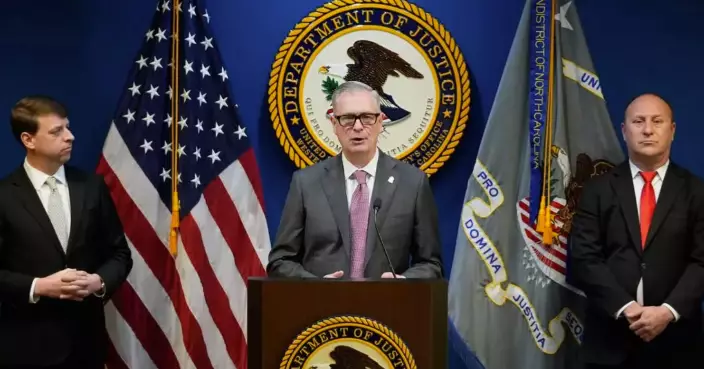
FBI says it disrupted a New Year's Eve attack plan inspired by Islamic State group

Deni Avdija has 34 points and 11 assists in the Trail Blazers' 122-109 win over the Pelicans

Point guard Jamal Murray is the last starter standing for the injury-plagued Denver Nuggets

Johnson has another triple-double and the Hawks beat the Knicks 111-99

Jaguars and new left tackle Cole Van Lanen agree to 3-year extension, AP source says

Donovan Mitchell scores 33 points, Cavaliers outlast short-handed Nuggets 113-108

Spurs beat free-falling Pacers 123-113 without Wembanyama

Morez Johnson Jr. scores career-high 29 points in No. 2 Michigan's 96-66 win over No. 24 USC

Champagnie scores season-high 20 points to lead the Wizards to a 119-99 win over the Nets

Former baseball player Lenny Dykstra faces drug charges after New Year's Day traffic stop
Deepening cooperation with China to unlock abundant opportunities for ROK: president

QB Joe Flacco appreciative of his chance to play for the Bengals

Trump and top Iranian officials exchange threats over protests roiling Iran

Eagles to rest some starters in finale with No. 2 seed in NFC playoffs at stake

Rifle-toting police will patrol the 5th Ashes cricket test in Sydney following Bondi shootings

Utah speedskater Casey Dawson enjoys a 'villain arc' as he earns an Olympic spot at 5,000 meters

Diane Crump, the first female jockey to ride in the Kentucky Derby, dies at 77

Minnesota must provide documents to US government in child care fraud probe by next week

Yemen’s separatists announce a constitution for an independent south

Patriots chasing 1st sweep of Dolphins since 2016 in regular-season finale

Vikings aim to help Jefferson end a frustrating season on a good note by hitting the 1,000-yard mark

Williams closes in on team passing record, 4,000-yard mark as Bears try to lock in No. 2 seed

Jaguars have the AFC South title and a home playoff game within reach against the Titans

Browns' Myles Garrett will try to break NFL sacks record in finale against Bengals and Joe Burrow

Broncos look to clinch AFC's No. 1 seed with win against Chargers

Ravens and Steelers meet for AFC North title. This time, both coaches are under scrutiny

Chiefs look to continue recent domination over the Raiders

Fans mourn closure of cupcake vending machine company Sprinkles Cupcakes

US Coast Guard searches for survivors of boat strikes as odds diminish days later

Eagles to rest key starters in season finale vs. Commanders even with playoff seeding at stake

Saints rookie Shough and Falcons veteran Cousins will match winning streaks in NFC South showdown

Zohran Mamdani's first full day as NYC mayor: subway rides, new offices and backlash from Israel

Final week of the NFL's regular season arrives with No. 1 seeds still undecided in AFC and NFC

Texans need win over Colts and loss by Jags to win AFC South for third straight season

Luke Littler reaches world darts final in bid for second straight title

Stafford, Rams look to end 2-game skid by hosting reeling Cards to wrap up regular season

NFC South rivals Falcons and Saints are looking to place encouraging final touch on losing seasons

Streaking Jaguars seek win No. 13, the AFC South title and another sweep of the Titans

Caleb Williams eyes 4,000 yards passing as Bears try to clinch NFC's No. 2 seed when they host Lions

Sean Payton isn't dazzled by the Broncos' record-breaking sacks and focuses instead on caging QBs

McDermott, Bills preparing for playoffs as they host Jets in possible last game at Highmark Stadium

Schenn scores game-winning goal as Blues beat Golden Knights 4-3

Health Authorities Urge Vulnerable Groups to Take Precautions Amid Cold Weather

Panthers-Buccaneers face off for the NFC South title, though Carolina can still clinch with a loss

What to know about Carnival season, Louisiana's biggest celebration

Tesla loses title as world's biggest electric vehicle maker as sales fall for second year in a row

49ers host the Seahawks in the season finale with the division title and top NFC seed on the line

Right-hander Tatsuya Imai and Houston Astros finalize $54 million, 3-year contract

Leão strike takes AC Milan to the top of Serie A

Earthquake with 6.5 magnitude rattles southern and central Mexico killing 2

Titans' owner streamlines front office roles; Borgonzi to lead coaching search

Zelenskyy names Ukraine's head of military intelligence as his new chief of staff

Wall Street edges higher in a wobbly start to 2026

Broncos look to clinch top AFC seed as Chargers rest Justin Herbert

Cardinals place WR Marvin Harrison Jr. on IR, ending disappointing second season

Patriots face Dolphins as legal cases for Diggs, Barmore cast cloud over pursuit of AFC's top seed

Grandmother and grandson burn to death in Gaza tent while cooking; Jolie visits Rafah crossing

Vikings' McCarthy returns at QB for finale against resting Packers as Tune gets 2nd career start

Jets' Breece Hall questionable for season finale against Bills, Isaiah Williams voted team MVP

Cowboys look to win their 10th consecutive game against the Giants

Osaka ill at United Cup in Perth but hopes to be OK for the Australian Open

Texans need win over Indy, loss by Jags to win AFC South title

Man fought off a mountain lion weeks before a suspected fatal Colorado attack

Panthers, Buccaneers battle for NFC South title in matchup of teams going in opposite directions

College football's Urban Meyer joins board of Florida college transformed by DeSantis

Seahawks and 49ers face off for NFC's top seed in high-stakes showdown



